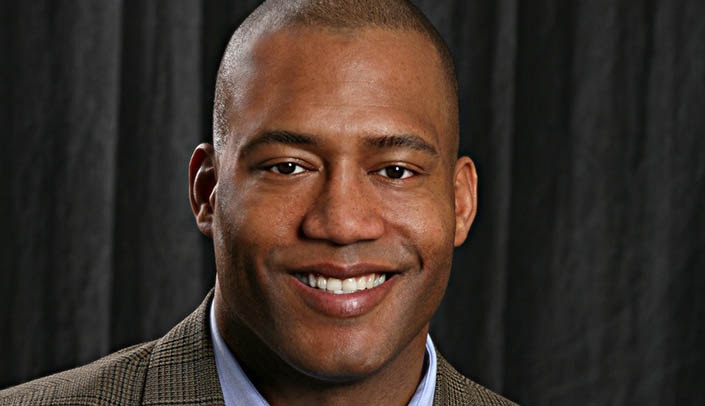What does it mean to serve others?
More than 350 attendees celebrated the life and legacy of Rev. Dr. Martin Luther King Jr. in a virtual setting while listening to a message that challenged them to find ways to serve the Omaha community in bold ways.
The annual program was held on Jan. 18 via Zoom, with a keynote address from Douglas County Commissioner Chris Rodgers. Rodgers, who represents Omaha’s third district and was recently sworn in for a fifth term, also serves as president of the Douglas County Board of Health and director of community and government relations for Creighton University.
Commissioner Rodgers’s presentation was centered around reframing Dr. King’s quote “life’s most persistent and urgent question is, ‘What are you doing for others?'” Rodgers reframed the quote to “What does it mean to equitably serve others or our community’s health care needs in a post-pandemic society?”
“We are at our best when we look out for our fellow man, and we are interconnected and interdependent on one another,” Rodgers said.
During his presentation, Rodgers challenged Nebraska Medicine and UNMC to increase support and investment in social determinants of health, develop a racial equity impact assessment and “flex our muscles” in the community to bring an end to systemic racism.
“Racism is a public health crisis,” Rodgers said. “We must better understand the impact of racial effects of policy issues and the effect they have on the community, to help leaders understand the implications of institutional practices.”
After his presentation, Rodgers answered questions from attendees, discussing how ACEs (Adverse Childhood Experiences) should be used when providing care, steps being taken in Douglas County to provide improved mental health response by the police and how UNMC students might incorporate social determinants of health into their education.
Rodgers also recommended several books to attendees who want to learn more about systemic racism and Dr. King’s legacy: “How to Be an Anti-Racist,” by Ibram X. Kendi, and “Caste,” by Isabel Wilkerson, as well as Dr. King’s “Letter from a Birmingham Jail.”
At the end of the event, Sheritta Strong, MD, UNMC director of inclusion and assistant professor of psychiatry, challenged attendees to a 21-Day Anti-Racism Challenge.
“We have to acknowledge the opportunities in our midst to provide world-class service,” Dr. Strong said. “This is an important message in a critical time in our community, in which the unprecedented no longer seems unprecedented.”
